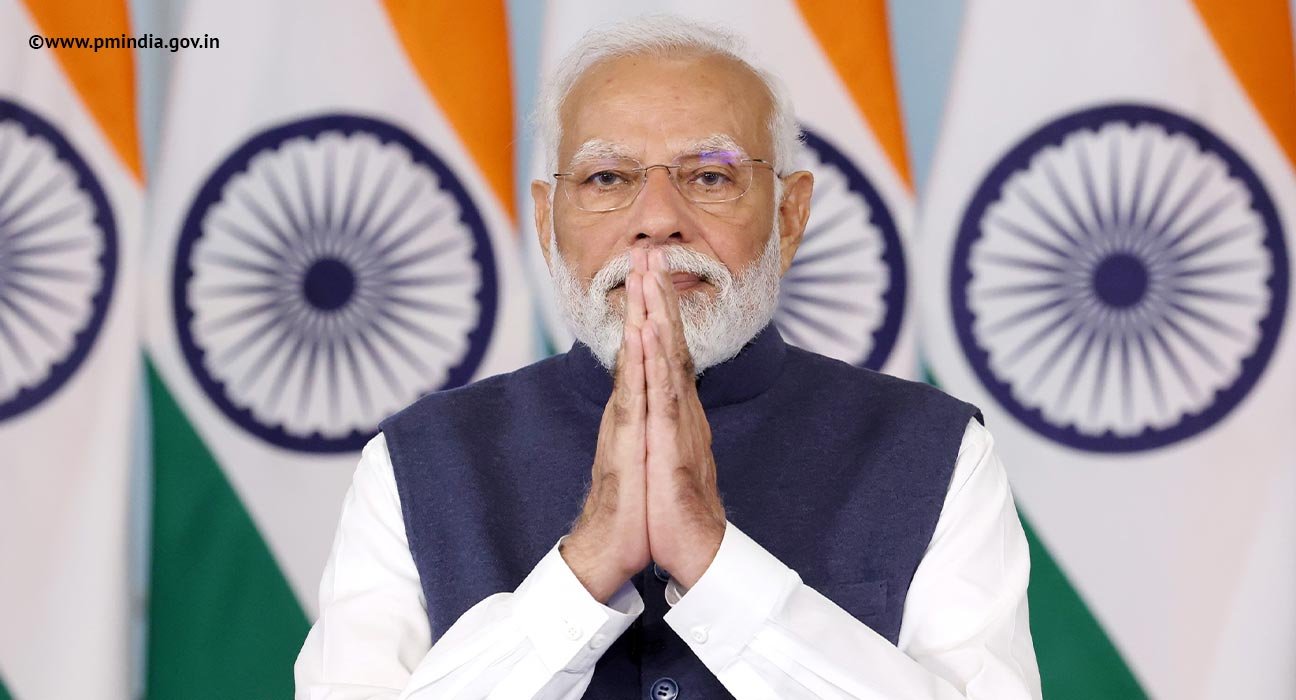In an attempt to reach a wider audience, Prime Minister Narendra Modi on Friday emphasized the importance of raising awareness about mental health and urged digital content makers to produce content on the subject in regional languages. Speaking at an event following the first-ever national creator’s award presentation at Bharat Mandapam in New Delhi, PM, Modi also praised the work being done on mental health by a number of content producers.
“Mental health concerns are among the most significant. I believe in my nation’s potential and value how sensitive its citizens are. Many artists are doing excellent work in the area of mental health, but we still need to focus more on this at the moment, ideally in the local tongue. Said the PM. The prime minister also brought up the issue of insomnia, stating that many individuals do not treat the condition seriously. YouTube creator Ranveer Allahbadia was given the disruptor of the year award, and it was proposed that he explore.
Also Read: Women’s Mental Health Summit & Awards (WMHSA) 2024
The significance of sleep for his show—a direct admission PM, Modi revealed his own sleep schedule, emphasizing his long-standing tendency of getting little sleep. The PM praised the content makers, branding them as the most valuable individuals, saying, “Your content is making an enormous difference across India. In a sense, you are now the MVP of the Internet. By this, I mean that you have elevated to the status of the most valuable individual. As we all know, engagement arises from collaboration between creativity and content. When digital transformation and content work together. When material collaborates with intention, it has an impact, and since you’ve all gathered here today, I’ve received calls for collaboration on a variety of subjects.”
Role of Social Media in Promoting Mental Health Awareness
Social media may have a positive impact on mental health care in the following ways:
- By serving as a resource and connecting users with professionals, advice, and resources
- Allowing users to join online communities and groups, which can offer a feeling of community, emotional support, and the chance to share experiences with others going through similar struggles.
- By playing a critical role in spreading awareness of mental health issues and lowering the stigma attached to them.
- By developing digital intervention programs, some applications and platforms have created and offer online therapy and self-management tools.
These digital resources can be of tremendous help in the prevention, identification, and even treatment of mental diseases, as they can reach those who wouldn’t otherwise be able to get to mental health services.
Authenticity is the foundation of trust, which is crucial for mental health marketing. Sincerity in messaging enhances the reputation of mental health organizations while also fostering trust. For example, the Canadian corporation Bell’s “Let’s Talk” campaign has effectively used real communication to create a national dialogue around mental health, which has had a significant impact.
Mental Health Narratives and social media engagement
Stories have a tremendous amount of power. They arouse hope and stimulate action, particularly when they depict the triumph of perseverance over obstacles related to mental health. However, these stories have to tread a fine line between respecting patient privacy and the compelling need for transparency—a skill that many well-run mental health organizations have mastered.
Also Read: Common Nightmares and Its Impact on Mental Health
When utilized skillfully, social media can counteract false information. The public can easily increase their awareness of difficult mental health topics by watching films, reading blog links, and creating infographics that simplify the subject. The work of Mental Health America, which uses a variety of instructional blogs to dispel myths and provide its followers with information, is a prime example.
The core of social media marketing is engagement. In addition to expanding the reach, encouraging audience participation through likes, shares, comments, and messages also strengthen the sense of community. Furthermore, demonstrating to audiences that their opinions matter through responsiveness and activity rewards their loyalty and raises the possibility that they may take part in mental health programs.
Influencer partnerships present unrealized possibilities for raising mental health awareness on social media. The message can reach a wider, more varied audience by acting as amplifiers in the form of celebrities and powerful individuals.
Also Read: NMC Sets up National Task Force to Address Mental Health of medical students
Mental Health Treatment and Awareness
Thus, there is evidence that social media can be helpful in the treatment of mental health issues despite the risks connected with improper usage of them. For instance, the #chatsafe campaign offers a secure online forum for youths between the ages of 10 and 24 to discuss suicide. It has been discovered to lower the likelihood of distress and subsequent suicidal conduct in young individuals who have made suicide attempts or have come into touch with those who have. A fascinating instance of the possibilities of social media is the utilization of brief movies aimed at reducing the stigma associated with individuals diagnosed with mental diseases, including schizophrenia.
References+
